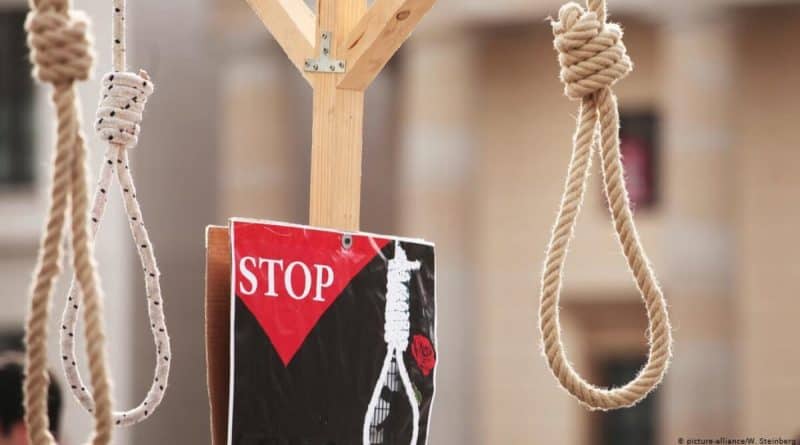Kazakhstan: The abolition of the death penalty will be enshrined in the Constitution
The abolition of the death penalty will be enshrined in the Constitution of Kazakhstan. Such an initiative was made by the President of the republic Kassym-Jomart Tokayev, making a speech to the people.
As ACCA has already reported, after coming to power in 2019, Tokayev promised to accede to the Second Optional Protocol to the International Covenant on Civil and Political Rights. This protocol was adopted by resolution 44/128 of the UN General Assembly on December 15, 1989. It states that “no person under the jurisdiction of a participant state to this Protocol shall be subject to the death penalty” and that “each participant state shall take all necessary measures to abolish the death penalty within its jurisdiction”.
At that time, the death penalty was no longer practiced in the republic, since a moratorium was imposed on this type of punishment in 2003. However, this provision was included in the Criminal Code and could be applied to all those sentenced to it a year after the end of the moratorium. Thus, people who committed crimes under such articles as “Encroachment on the life of the first President of Kazakhstan – the Leader of the nation”, “Encroachment on the life of the President of Kazakhstan”, “Terrorism”, “High treason in wartime”, “Desertion in wartime”, etc. (17 articles in total) could be sentenced to extreme penalty.
On September 24, 2020, the Permanent Representative of Kazakhstan to the UN Kairat Umarov signed the Second Optional Protocol to the International Covenant on Civil and Political Rights. However, it soon became clear that despite the signing of the Protocol, the death penalty in Kazakhstan wasn’t completely abolished, but with some reservations, since the country’s Constitution contains Article 15, paragraph 2, which states that “the death penalty is established by law as an exceptional measure of punishment for terrorist crimes associated with the death of people, as well as for especially grave crimes committed in wartime, granting the sentenced the right to apply for pardon.
This legal non-fitment forced President Tokayev to apply to the Constitutional Council with a request to explain this provision of the Constitution. The Constitutional Council, having considered the appeal of the President, came to the conclusion that it’s possible to abolish the death penalty not only by making appropriate amendments to the Constitution, but also by ratifying an international treaty providing for the abolition or limitation of the number of crimes for which this type of punishment can be administered.
“You know that I pay special attention to protecting the fundamental rights of citizens. In 2020, our country joined the Second Optional Protocol to the International Covenant on Civil and Political Rights, which provides for the abolition of the death penalty. Last year, I signed a decree on further measures in the field of human rights aimed at the long-term and comprehensive development of this area. With the participation of the National Council of Public Trust, a number of other progressive initiatives were also implemented. However, human rights issues require constant improvement. I believe that in order to finally consolidate the decision to abolish the death penalty, it’s necessary to make appropriate changes to the Constitution,” Tokayev said.
At the same time, he noted that it’s also necessary to introduce a systematic approach to the investigation of crimes related to torture.
“Today, there is no specific body responsible for this direction. This practice is fraught with certain risks. Therefore, I propose to assign these powers to the Prosecutor General’s Office. Such an approach will ensure the objectivity and impartiality of the investigation, confirm the inevitability of punishment for arbitrariness in the law enforcement sphere,” the head of state noted.
In addition, he emphasized that it’s necessary to take systematic measures to reduce the level of violence in society, since human rights activists regularly receive requests to toughen punishment for violence against women and children.
“It’s also necessary to expand civil participation in the administration of justice; this refers to jury trials. In Kazakhstan, jurors can only reach a verdict on especially serious crimes. But I believe that we should go further and expand the category of cases subject to jury trials. This innovation will contribute to the democratization of the judiciary and increase public confidence in it,” Tokayev added.




